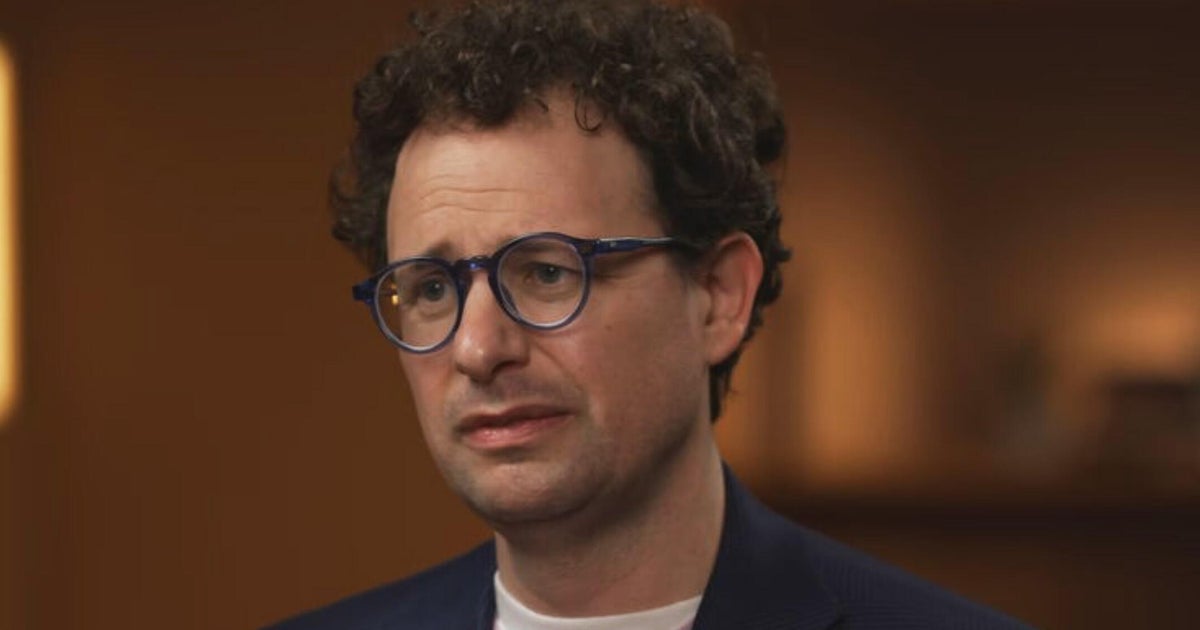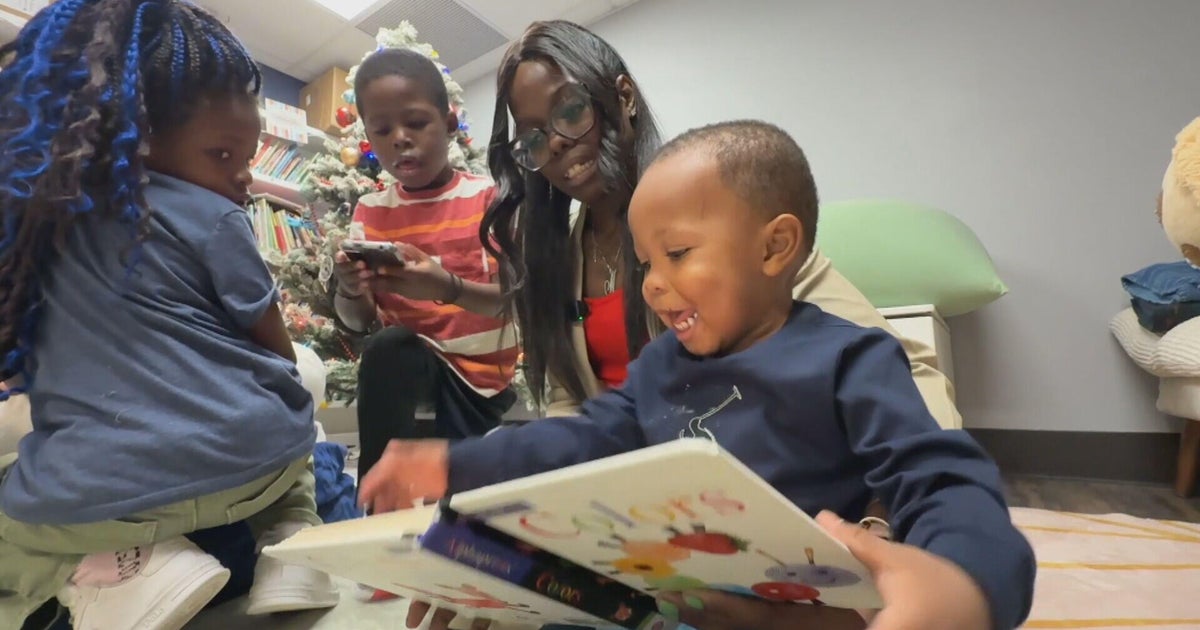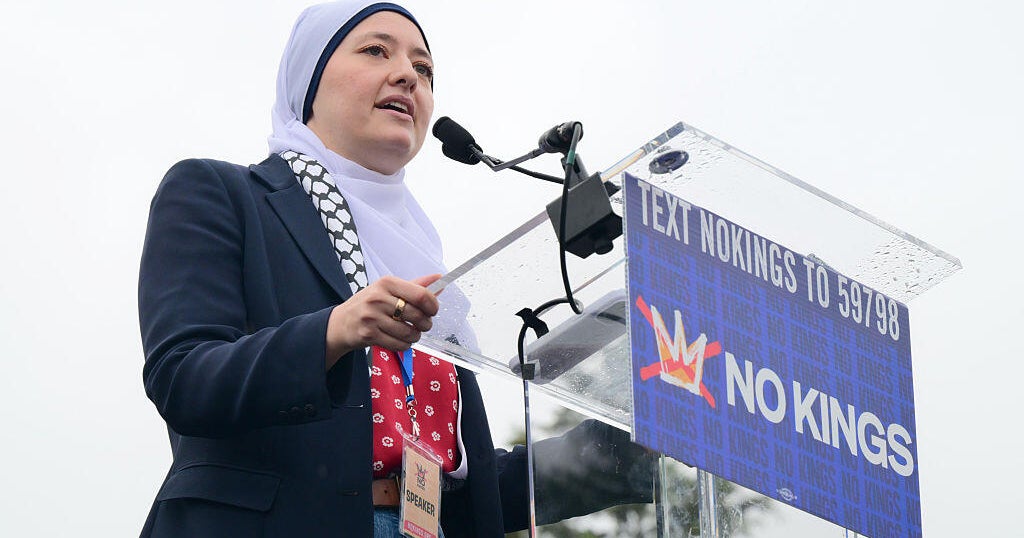A "painful reality": Nonprofits providing essential services warn of impending funding crisis
Washington — When the call came through United Way's support hotline from a homeless woman in Atlanta who was worried she was infected with the coronavirus, the organization was quick to act.
United Way connected the woman with Catholic Charities, its president and CEO Brian Gallagher told CBS News, which in turn secured her a hotel room for two weeks, free of charge.
At the end of those two weeks, Gallagher knows the woman still won't have a home to return to. But he points to the episode as evidence of the assistance nonprofit organizations are providing in the midst of the pandemic, even as they grapple with whether they can survive the coming months.
"There is no question that even though we can operate for the next couple of months, the three to six months after that is going to be a whole different ball game," Gallagher said.
With more than 16 million Americans out of work, and restaurants, retailers and schools shuttered, nonprofits are continuing to provide critical services to communities nationwide.
More than 645 YMCAs, for example, are providing food for children who are affected by school closures, while more than 800 provide child care to frontline workers. Boys & Girls Clubs are offering similar services and have launched virtual learning programming to ensure kids remain on track academically, said Julie Teer, chief development and public affairs officer for Boys & Girls Clubs of America.
The United Way's 211 hotline has seen a significant spike in calls over the last few weeks, Gallagher said. The organization is now taking 75,000 calls per day, which puts it on pace for roughly 27 million this year, more than twice the 12 million calls it fields in a typical year.
"The nonprofit sector is a huge part of the economy. It's not just charity that's a nice thing to do that may be disposable," Gallagher said. "This is critical to the health of the economy and it's critical to literally the health and survival of lots of people across the country."
While large organizations like YMCA of the USA and United Way Worldwide may be able to weather the coronavirus crisis, smaller nonprofits face an uphill battle, especially as stay-at-home orders and social distancing guidelines hamper the traditional means of fundraising and force them to alter their programs.
"Most organizations don't carry a lot of cash," Gallagher said. "You consider yourself a pretty solid nonprofit if you're carrying two, three, four months of operating reserves."
But that doesn't mean the more well-known organizations are immune from the challenges the coronavirus pandemic has thrown their way.
Kevin Washington, president and CEO of YMCA of the USA, said the organization is expected to lose $400 million in revenue in April alone. Some YMCA branches, he said, can last two to three months, "but few of them can go any further than that without having a clear path to what our needs are."
"The reality is there are no significant reserves," he said.
Mary Beth Bruggeman, president of The Mission Continues, a veterans organization, said the group has had to adapt to how it serves veterans forced to remain at home.
The organization has halted its in-person service projects and is encouraging veterans to create their own projects with their families.
One project it has launched is a nationwide vegetable growing effort, where veterans foster seedlings in their homes that can then be transplanted to community gardens or schools. The Mission Continues is also encouraging veterans to clean up their communities when they go out for walks or runs, and has devoted more resources to the virtual curriculum for its leadership development programs, which also had an in-person component.
"While this response is happening, veterans from The Mission Continues are not on the front lines," Bruggeman said. "That's not where our veterans are prepared to be. They are on the proverbial sidelines, but you need a bench. Any time you've got your first string in, you need a bench, and a deep bench, and that's where we come in."
Meals on Wheels America, meanwhile, has seen a significant uptick in demand as the coronavirus has forced more older Americans, who face a higher risk of severe illness from the coronavirus, to remain in their homes.
Ellie Hollander, the Meals on Wheels America president and CEO, said local programs have had to shutter communal meal sites and moved to either grab-and-go or drive-through meal pick-up. The group's delivery methods have also changed to a "no-touch" approach, where volunteers may not go into a home but will instead observe seniors from a distance or check in via phone.
"These few weeks feel like months," Hollander said. "It truly feels like a marathon, and we're in for the long haul. We've seen an incredible need to pivot quickly to adapt to these changes that are occurring."
Because delivery volunteers for Meals on Wheels also tend to be older, Hollander said the organization has seen a rise in the number of young people stepping in to help, including college students who are home because of canceled in-person classes.
"We're seeing in some respects America at its best, wanting to pay it forward and give back," she said.
To address the spike in demand for its services, Meals on Wheels launched a COVID-19 Response Fund last month that has brought in $15 million. Hollander said the organization has seen an "amazing outpouring of generosity" from corporations, foundations and individuals, but warned there could still be a gap between what has been raised and the heightened demand for assistance.
Bruggeman, too, said The Mission Continues' existing partners have continued to support the organization and allowed for flexibility in their grants.
"Finding new business is a challenge," she said. "It's doable during this time, but really difficult to get attention right now, particularly if you're not an organization that is posturing themselves as being front and center in the response. But that's not who we are. We're on the front lines of the recovery."
Bruggeman said The Mission Continues has the scale and maturity for longer-term viability, but predicted a consequence of the coronavirus crisis will be the demise of smaller organizations.
"We occasionally forget the role that nonprofits play in this country in balancing out what the government is able to provide, what private businesses are able to provide. Now you add in the third leg of that stool. We need those services," she said. "It's going to be a painful reality that a lot of organizations that have not reached that scale or maturity are going to crumble."
To address the economic fallout from the coronavirus pandemic, Congress last month passed a $2.2 trillion rescue package to provide American workers, small businesses and ailing industries with an infusion of cash.
Nonprofits with less than 500 employees do qualify for the loans from the Small Business Administration, which are forgiven if they keep staff on the payroll through June, but Washington, from the YMCA, said it's not enough and leaves large, nationwide organizations out.
"We need a significant investment from the federal government to support all of these nonprofits that are working now, but more importantly will be needed on the other side," Washington said. "If we don't see significant support from the federal government, many will not be there when they're going to be needed again."
Gallagher, meanwhile, warned that while many nonprofits have seen a spike in donations immediately, experience shows contributions likely will crater in the coming months.
"Most of the giving that happens to support our organizations in the crisis itself happens within weeks. That giving is not going to be there at the same level that you see the activity right now," Gallagher said. "Without government support to keep these nonprofits operating through the next three to six months, I'm afraid we're going hit this abyss operationally that is going to put a lot of nonprofits out of business and so financially wounded they won't be able to come back."
The Senate is weighing an emergency legislative package that would include an additional $250 billion for small businesses, but congressional Democrats want the measure to also boost funding for state and local governments and hospitals, and increase food assistance.
House Speaker Nancy Pelosi urged her fellow Democrats in a letter Tuesday to ensure nonprofits and universities have access to lending options authorized by the $2.2 trillion economic relief package and warned a lending facility announced by the Federal Reserve leaves them out.
"This is a significant blow in particular to entities that are also ineligible for the Paycheck Protection Program," she wrote.
Hollander, of Meals on Wheels, said a boost in monthly Supplemental Nutrition Assistance Program benefits and access to grocery delivery for older Americans should be addressed in a fourth legislative package, which Democrats have begun crafting, and also wants to see a strengthening of charitable-giving incentives.
"[Nonprofit employees] are expected to work, and a lot of nonprofits don't have deep bench strength," she said. "They're small and they're mighty, but if they lose one person if they're ill or have someone to take care of, that can be a large percentage of that nonprofit's capability, and many are on the frontlines."




